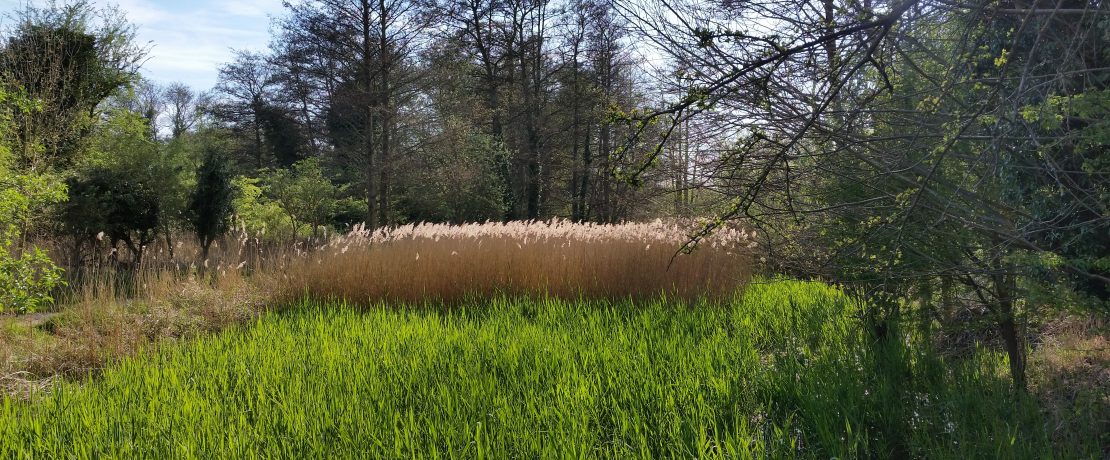Countryside spots off the beaten path
We put together a list of countryside spots in Cambridgeshire you might not have visited yet.
Fowlmere Nature Reserve
This 41-hectare nature reserve is made up of reed beds, open shallow water, woodland, chalk grassland and scrub. The reserve, which was previously used to grow watercress, is now a Site of Special Scientific Interest (SSSI). It features a small, but beautifully clear chalk stream where you might catch a glimpse of a water vole. The site is rich in wildlife, including kingfishers, turtle doves and reed buntings. There are three hides and a circular trail, part of which is a boardwalk through reed beds.
Parking is free for RSPB members. £2 for non-members.
https://www.rspb.org.uk/reserves-and-events/reserves-a-z/fowlmere/
RSPB Fowlmere, Mill Rd, Royston SG8 6EZ
Magog Down
Located four miles south of Cambridge, Magog Down is a compact site, but its hilly terrain and paths make for good walking and contemplation. The site, totalling around 160 acres, contains six woods and two meadows. Magog Trust, the organisation that runs the Down, is in the process of restoring the meadows back to traditional chalk grasslands. The North Down itself offers expansive views of Cambridge and the surrounding countryside.
Parking costs £3 but is free for Friends of Magog Down.
Magog Down, Haverhill Road, Stapleford, Cambridge CB22 3AE
Holt Island Nature Reserve
The nature reserve is a green and peaceful oasis located just off St Ives town centre. The area was originally used to grow willows for basket-making but when this use ended, the site rewilded itself. It is made up of nine acres of wet woodland habitat. A circular boardwalk gives good access to the site. A small reedbed on the island attracts reed and sedge warblers. There are also birdfeeders, bat boxes and beehives.
Note: Open between April and October on Saturdays, Sundays and bank holidays.
Host Island Nature Reserve, Church Street, St Ives PE27 5BY
New Decoy
New Decoy is part of the Great Fen, a 50-year project of habitat restoration. The site is situated between two fragments of ancient, wild fens. A trail takes you around the perimeter of the site and incorporates a bird hide made from locally sourced materials. As part of habitat restoration, some of the fields are being restored to wet meadows. Because of low light pollution, the area at the New Decoy information point has been designated as a Dark Sky Discovery Site. New Decoy is managed by the Wildlife Trust for Bedfordshire, Cambridgeshire and Northamptonshire.
https://www.greatfen.org.uk/new-decoy
New Decoy Great Fen, Holme, Peterborough PE7 3PW
Paxton Pits Nature Reserve
Paxton Pits is made up of a series of lakes, meadows and woodland. Formerly gravel pits, the 77-hectare site has 70 species of birds, including nightingales. The website has a handy month-by-month guide to the flora and fauna you might see. Keep an eye out for events, such as talks and guided walks. There are also opportunities to volunteer to help maintain the habitat. After a good walk, you can stop by the visitor centre for a cup of tea.
Paxton Pits Nature Reserve, High Street, Little Paxton, PE19 6ET
Prickwillow Engine Museum
The Prickwillow Engine Museum has a collection of diesel pumping engines, which were used to drain the Fens to protect them from floods. The museum provides a history of the local area and the pumps and the people who ran them. The museum is located on a picturesque stretch of the River Lark and is around five miles south of Ely.
Note: The museum is open from April to October.
https://www.prickwillowmuseum.com/
Prickwillow Engine Museum, Main Street, Prickwillow, Ely, Cambridgeshire CB7 4UN




